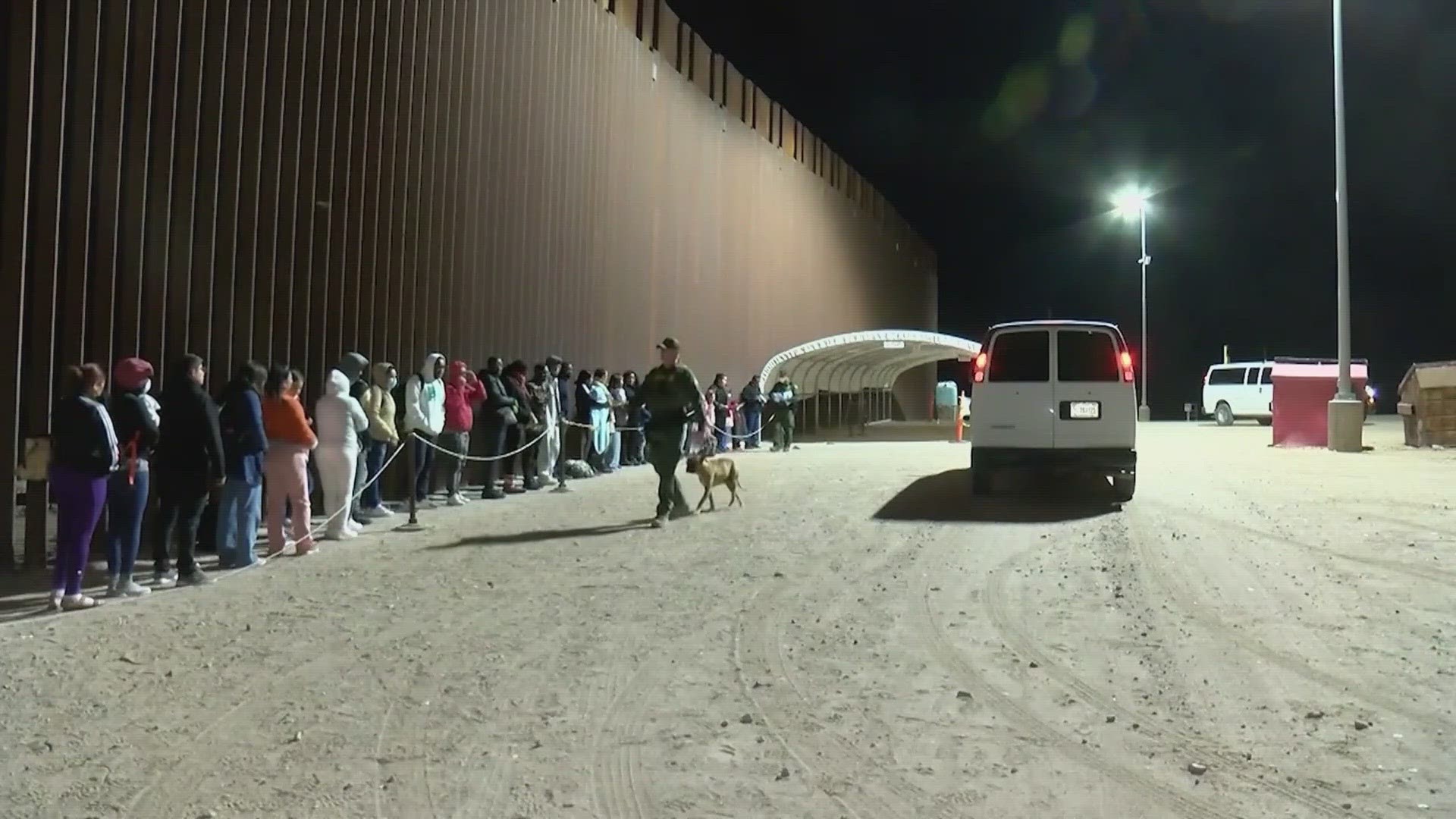SAN ANTONIO — U.S. Congressman Henry Cuellar (TX-28) last week announced over $24 million in federal funding for the San Antonio area through the Emergency Food and Shelter Program (EFSP).
While new Biden administration policies have helped, Cuellar on Friday told KENS 5 that Mexico has stepped up in its partnership with the United States in order to address the border situation since Title 42 expired just over one month ago.
"They were getting at the border around 10,000 people or more a day. Now it's around 3,100 a day, and this week it's about 3,500," Cuellar said. "Still, it's a large number of people. But certainly it has dropped down."
Cuellar said Texas communities, and especially border communities, still need help through EFSP to deal with the stream of immigrants.
"It's basic food, shelter and transportation. That's what the money is being used for. If we don't do that, the City of San Antonio, the United Way and Catholic Charities would have to get the money locally from tax payer," Cuellar said.
At the same time, Cuellar said the U.S. is making progress on the immigration crisis thanks to new policies and new partnerships—particularly with Mexico.
"Mexico, when Title 42 went away, started doing two things. One, people that were being returned across the border... they are not taking them to their (Mexico's) southern border with Guatemala," Cuellar said.
Migrants who were caught at the border are much less likely to want to travel all the way though Mexico a second time, especially if they were relying on traffickers to get them to the border.
Cuellar said the second policy change made by Mexico was to increase its national guard force at their southern border with Guatemala.
"Mexico had, as of two weeks ago, 40,000 national guard and other people at their southern border with Guatemala. So that slowed down a lot of people," Cuellar said. "The U.S. has also been working with Panama and Columbia to slow down people in the Darién Gap. So it's really what's done outside the U.S. that slows down the number of people San Antonio sees."
Mexico has also agreed to take back migrants from Cuba, Haiti, Nicaragua and Venezuela, which keeps those individuals out of U.S. detention centers.
Cuellar told KENS 5 Mexico won't do that forever, but the help is very appreciated.
"Mexico is doing a lot. We don't give enough credit to Mexico. We want to thank them, we think they can do more, but we want to give them credit for the things they are doing," Cuellar said.
Cuellar said the new federal policy that requires migrants to apply for asylum in another country they travel though before applying in the United States has been helpful as well, though it's not popular with everyone.
"The ACLU is saying they are going to challenge it. I disagree with them. When somebody wants to ask for asylum because they want to get away from fear, the U.S. is not the only place in the whole world," Cuellar said. "It may be your preference, but if you pass though another country where they fear is taken away, there goes your asylum claim."
KENS 5 also asked Cuellar about the CBP One mobile app. Cuellar said that app is currently allowing the U.S. to take the number of people they were expecting, so the process is still working.
The Biden administration is still working to set up migrant processing centers in Columbia and in Central America. Cuellar said he doesn't know if those centers are close to being operational or not.
>MORE BORDER COVERAGE:

